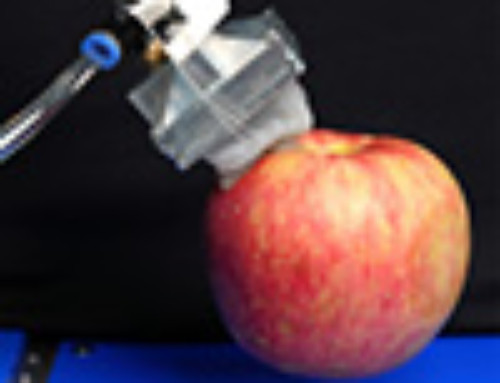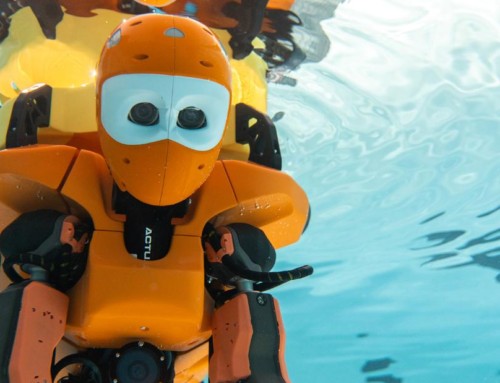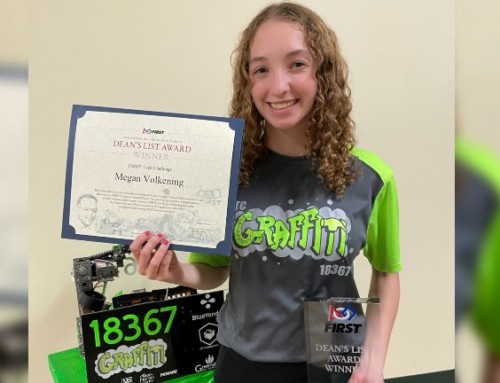[ad_1]
Brother Rice High School in Mount Greenwood prides itself on promoting STEM and service in its classrooms.
When those two missions intersected this school year, students were afforded the rare opportunity to change a young girl’s life.
From August to March, robotics team members Liam Coughlin and Matteo Valencia spent countless hours putting their engineering know-how to practical use creating personalized 3D-printed prosthetic hands for a Cambodian teenager who was born without hands or feet.
The pair of seniors got to see the impact of all their hard work late last month when a delegation from Love Without Boundaries, a nonprofit co-founded by Brother Rice graduate Paul Duggan, brought the hands to 17-year-old Srey Noun in Poipet, Cambodia.
Coughlin, of Orland Park, and Valencia, of Evergreen Park, didn’t make the long distance delivery trip, but they were able to watch videos of Noun trying on her new hands and using them to pick up objects and write with a pencil.
“When I watched that video,” said Valencia, who plans to study criminal justice at Illinois State University next year. “I was, like, overcome with joy, I was actually kind of getting a little bit of a tear going in my eye.
“I couldn’t express in words what I felt in that moment when I saw her put the hand on and everything.”
Coughlin, a design whiz who is headed to Purdue University next year to study aerospace engineering, said it was “wonderful” to see one of his creations have a real-world impact.
“She looked like she was having a blast with it,” he said. “That was just great to see months of work really come together and to help somebody out.”
Robotics team coach Eric Gamboa, who left a career as a microbiologist four years ago to come teach at Brother Rice, said it was opportunities like this that attracted him to the classroom.
“Using our knowledge is great and all, but using it to help people is why I’m here in the first place,” said Gamboa, who teaches biology and chemistry. “Just being able to take what we know, whether it be science or engineering, and apply it to change someone’s life.”
Brother Rice students actually began using the school’s 3D printer to make prosthetic hands last year as part of what became known as the Helping Hands Project. Two robotics team members who have since graduated led the project mass-producing “generic” prosthetic hands and shipping them down to South Carolina for distribution to children in need.
“Children are fast-growing, obviously, and they oftentimes outgrow the prosthetics that they have,” Gamboa explained. “So if they have like a stock of hands that they will eventually grow into, that’s kind of the idea, too. Instead of buying a $40,000 replacement, you could buy a much cheaper hand that you have now grown into.”
When Coughlin and Valencia assumed operation of the robotics team’s prosthetics project this year, they decided to challenge themselves by introducing an additional design wrinkle.
Rather than creating “generic” hands based on a pre-existing model, the pair opted to make hands that were form-fitted to a single individual.
“We were looking for a more personalized project we could work on and that’s when Paul (Duggan) came by with Love Without Boundaries and was able to kind of give us an opportunity to put a lot of effort into one specific hand,” Coughlin said.
Duggan, who serves as Love Without Boundaries’ emeritus chair, said he saw an opportunity for collaboration between his nonprofit, which provides medical care and educational opportunities to vulnerable children in developing countries, and his alma mater, after learning about the school’s work with prosthetics.
Specifically, he realized the students’ engineering ingenuity might benefit a Cambodian teenager born without hands and feet whose education Love Without Boundaries was supporting.
“I put the two concepts together and said here’s a great project for Brother Rice and a great project for this young lady,” Duggan said.
Coughlin and Valencia got to work on the project after receiving Noun’s measurements from a Love Without Boundaries doctor who took them in Cambodia.
“A lot of it was just kind of flying blind, trying to slowly, almost like sculpt it out in the modeling software and just kind of hoping and praying that it’s going to fit well,” said Coughlin, who designed the hands using a computer.
Because her right arm has a wrist and two partial fingers, the students, who set out to build a wrist-driven device, were able to create a hand that opens and closes with wrist movements. To ensure a perfect fit, they created three right hands of slightly different sizes so that Noun could try on each and choose whichever was most comfortable.
For her left hand, the students created only one static hand because Noun’s left arm does not have a wrist to activate the hand-clenching movements.
All of the hands — which Coughlin and Valencia estimated took about 20 hours to design, 36 hours to print and a couple hours to assemble — are made of PLA plastic that matches Noun’s skin tone.
“It’s a whole different experience when you know every day this is how this is going to affect someone’s life,” Coughlin said. “I spent well over a week just looking at what was basically a finished model, just like looking around for the little imperfections…It’s a lot more personal when you really know who it’s going to.”
Duggan, who was part of the Love Without Boundaries group that traveled to Cambodia a few weeks ago to deliver the hands, said they were fully functional and put a smile on Noun’s face when she tried them on.
“It was a good beginning to a life change,” he said.
Priyanka Das, the Love Without Boundaries worker who assisted Noun in putting on the hands, said the teen told her, through an interpreter, that she wanted to use her new hands to manipulate a touchscreen and grip a motorcycle — a common mode of transportation in Cambodia.
“She just wants to be able to do everything else that her friends are doing,” said Das, who explained that while the fingers of the prosthetic hands are not currently reactive to a phone’s touchscreen, it might be possible to add that functionality in the future.
For now, Noun is working on getting comfortable wearing and using her new hands, which takes a little practice.
“It’s not like all of a sudden you have this hand and you can just do whatever you want with it,” Das said. “But she picked up on it pretty quickly, like she was very aware of the function of it. Especially given how well it was made.
“You could see her interest in being able to see the curling of the fingers, which is something that she wasn’t used to.”
In addition to preparing for the annual Midwest regional robotics competition on April 27 — which Brother Rice has won the past three years — Coughlin and Valencia are also making some minor tweaks to the prosthetic hands at Noun’s request.
Duggan said someone from Love Without Boundaries would be returning to Cambodia to provide Noun with the modified hand parts during the first week of May and that the organization would be continuing to monitor her progress.
It remains to be seen whether next year’s crop of robotics club leaders will carry on the prosthetics work of their forebears, but Duggan said he’d love to continue linking Brother Rice students to service opportunities with his nonprofit.
zkoeske@tribpub.com
Twitter @ZakKoeske
[ad_2]
Source link






Leave A Comment
You must be logged in to post a comment.